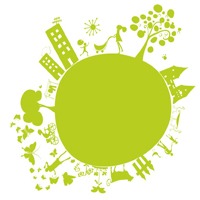Accessibility in the Smart City
Abstract
FIABA is a cultural route for all, its aim is to promote a Global Accessibility and a Universal Usability through the removal of architectural, cultural, psychological and sensory barriers. FIABA is carrying out a real change and a cultural renewal in the name of equal opportunities. Respect for the environment in which we live is also a duty towards the younger generations to whom we must deliver a world in which free movement and the normal use of spaces are goals already achieved. There are millions of citizens who, because of their physical conditions are prisoners in their homes because there isn’t any elevator or any elevator maintenance. FIABA project aims at implementing “a Space for all” or “a landscape for all” following the path of the ONU Convention on the Rights of People with disabilities with an emphasis on architectural, cultural, and psychological barriers, the last ones in particular, create barriers to equal opportunities and they are often carriers of discrimination. The principle of accessibility is invoked in Article 9 of the Convention which confirms the principle that people have a right to live independently and participate fully in all spheres of life and thus States are required to take all necessary measures to ensure accessibility to physical environment, transport, information and communications, including systems and technologies of information and communication and other facilities and services open to the public, both in urban and rural areas.
Downloads
References
Cnel, Istat (2013), Rapporto Bes 2013 – Il Benessere equo e sostenibile in Italia, Roma.
Osservatorio Nazionale Smart City ANCI (2013), Vademecum per la città intelligente.
Raffaelli D., Sabbadini L.L. (2013), “Bes e UrBES – Indicatori del benessere equo e sostenibile”, Ecoscienza, n. 3, Arpa, Bologna.
Southampton, Discover Southampton, http://www.discoversouthampton.co.uk/live/gettingabout/smartcities-card.

Copyright (c) 2014 Tema. Journal of Land Use, Mobility and Environment

This work is licensed under a Creative Commons Attribution 4.0 International License.
Authors who publish in this journal agree to the following:
1. Authors retain the rights to their work and give in to the journal the right of first publication of the work simultaneously licensed under a Creative Commons License - Attribution that allows others to share the work indicating the authorship and the initial publication in this journal.
2. Authors can adhere to other agreements of non-exclusive license for the distribution of the published version of the work (ex. To deposit it in an institutional repository or to publish it in a monography), provided to indicate that the document was first published in this journal.
3. Authors can distribute their work online (ex. In institutional repositories or in their website) prior to and during the submission process, as it can lead to productive exchanges and it can increase the quotations of the published work (See The Effect of Open Access)
